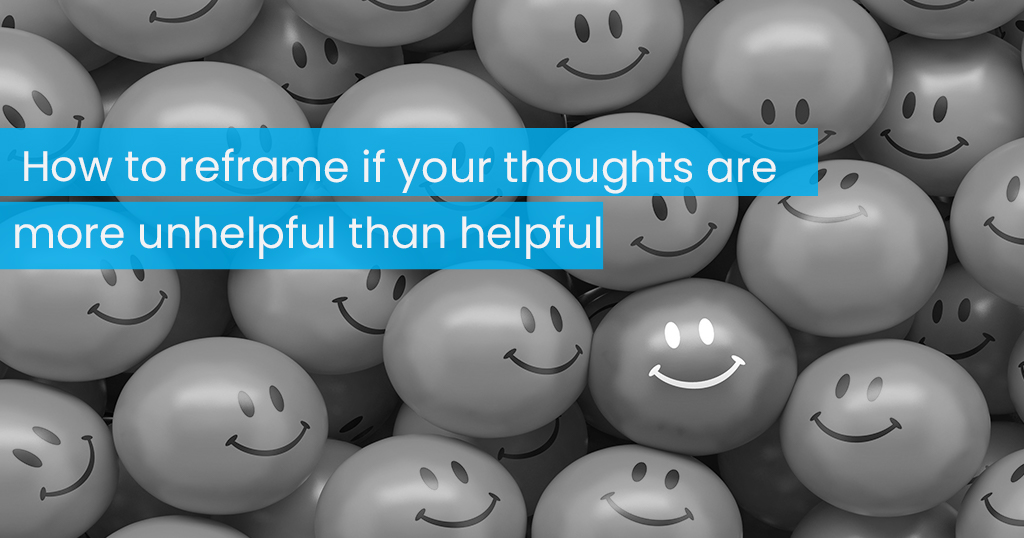
How to reframe your unhelpful thoughts
What does your inner voice say to you when something doesn’t go to plan? Is it rational and accepting? Or does it catastrophise and always focus on the negative? If your inner voice relates more to the latter, you might be engaging in unhelpful thinking patterns. Identifying your thought patterns and consciously working to shift your mindset takes practice but it is definitely worth it!
Types of unhelpful thinking styles
Catastrophising: letting the ‘what if’ scenarios consume your thoughts, until something small has turned into a tornado of epic proportion in your mind.
Black & White Thinking: viewing experiences as one extreme or another.
Mistaking Feelings for Facts: thoughts and feelings are not facts or reality and judging them as such is doing yourself a disservice.
Looking on the Dark Side: looking at the world through dark coloured glasses telling yourself things like “bad things always happen to me”
Personalising: taking responsibility for something you are not responsible for. If someone is in a bad mood, it’s actually not your fault, no matter how much you might tell yourself it is.
Strategies to promote more helpful thinking styles
Daily mindfulness meditation: by practicing mindfulness meditation daily, even for just 10 minutes, you are able to separate yourself and your thoughts and observe that your thoughts are simply that… thoughts! Not facts.
Distraction techniques: Sometimes distracting yourself by reading, focusing on your breathing or becoming absorbed in conversation can draw us out of ruminating on particular thoughts or event.
Perspective Taking: Put your thoughts into perspective by completing these statements:
- “At least I’m not…”
- Will this matter 5 years from now?
- What sort of reaction/energy does this event really warrant?
- How important is this event in the big scheme of things?
Don’t feel discouraged if you find yourself falling into “bad habits” of unhelpful thinking styles. Like any habit, it takes consistency and hard work to making long-lasting change. Persistence is key! Work towards catching yourself when you start engaging in unhelpful thinking styles and engaging in the above strategies to slowly but surely shifting your thinking from unhelpful to helpful.